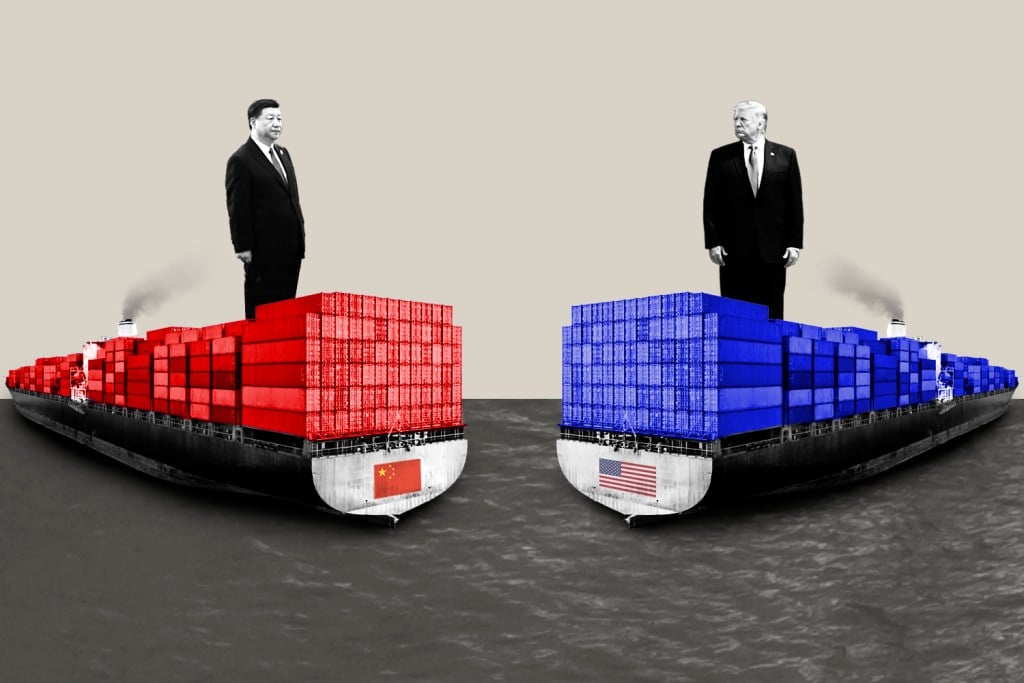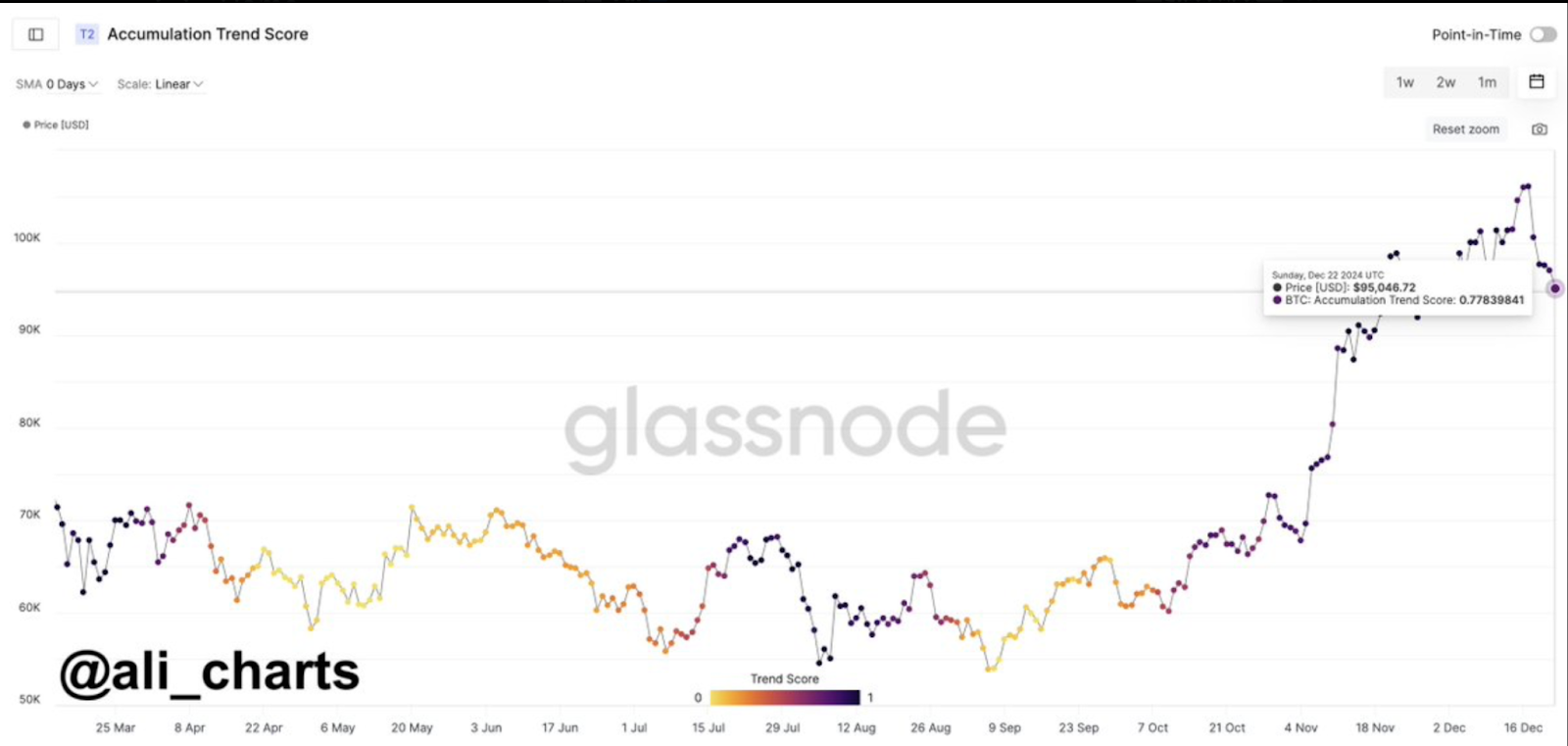The Great Decoupling In The 21st Century: A New World Order?

Table of Contents
Economic Decoupling: A Shift in Global Trade and Investment
The Great Decoupling is fundamentally altering global trade and investment patterns. The era of hyper-globalization, characterized by intricate, globally integrated supply chains, is giving way to a more regionalized and diversified approach.
Diversification of Supply Chains
Businesses are actively reducing their reliance on single-sourcing, opting instead for multiple suppliers located in diverse geographical regions. This "de-risking" strategy aims to mitigate vulnerabilities stemming from geopolitical instability, natural disasters, and pandemics.
- Examples: Companies are shifting production from China to countries like Vietnam, Mexico, and India. Automotive manufacturers are diversifying their semiconductor sourcing.
- Impact on Manufacturing: This shift leads to a reconfiguration of global manufacturing hubs, with a rise in regional production clusters.
- Nearshoring and Friend-shoring: Companies are increasingly prioritizing "nearshoring" (moving production closer to home) and "friend-shoring" (locating production in politically aligned countries) to enhance supply chain resilience and security.
Rise of Regional Trade Blocs
The decline in multilateralism and the rise of protectionist sentiments have spurred the growth of regional trade blocs. These agreements offer an alternative to globalized trade, fostering economic cooperation within specific geographical areas.
- Examples: The Regional Comprehensive Economic Partnership (RCEP), the largest free trade agreement in the world, and the United States-Mexico-Canada Agreement (USMCA) exemplify this trend.
- Impact on Global Trade Patterns: Regional trade agreements are reshaping global trade flows, potentially leading to a less integrated and more fragmented global market.
- Benefits and Drawbacks: While regional blocs can stimulate intra-regional trade and economic growth, they may also lead to trade diversion and hinder global economic integration.
Technological Competition and its Impact on Economic Independence
Technological competition, particularly in areas like artificial intelligence and semiconductors, is a major driver of economic decoupling. Countries are increasingly prioritizing technological self-reliance to reduce dependence on foreign technology and avoid potential vulnerabilities.
- Technological Sanctions: The use of technology sanctions as a geopolitical tool is accelerating the development of parallel technological ecosystems.
- National Strategies for Technological Self-Reliance: Many nations are investing heavily in domestic research and development to achieve technological independence.
- Implications for Global Innovation: While this could lead to a slowdown in global innovation due to reduced collaboration, it may also foster innovation within individual regions or countries.
Geopolitical Decoupling: The Rise of Multipolarity?
The Great Decoupling is fundamentally reshaping the global geopolitical landscape, potentially leading to a multipolar world order.
The US-China Relationship and its Global Impact
The increasingly strained relationship between the United States and China is a primary catalyst for global decoupling. This rivalry has far-reaching consequences for global politics and economics.
- Geopolitical Tensions: Trade disputes, technological competition, and ideological differences contribute to escalating tensions.
- Impact on Alliances: Countries are increasingly forced to choose sides, leading to a realignment of global alliances.
- Role of International Organizations: The effectiveness of international organizations in managing global conflicts is being challenged by great power competition.
Realignment of Global Alliances
The decoupling trend is fostering the formation of new alliances and shifts in existing ones. This realignment reflects a changing power dynamic and a move away from traditional alliances.
- Shifting Alliances: Countries are forging new partnerships based on shared economic interests and strategic goals.
- Rise of New Power Blocs: Regional alliances are consolidating, potentially leading to the emergence of new power blocs.
- Implications for Global Security: This realignment could lead to increased regional instability and the potential for new conflicts.
The Role of Emerging Economies
Emerging economies like India and Brazil are playing an increasingly important role in shaping the new global order. Their growing economic and political influence is challenging the traditional dominance of Western powers.
- Growing Influence: These countries are leveraging their growing economic strength to enhance their geopolitical standing.
- Shaping Global Governance: They are pushing for reforms in international institutions to reflect their growing influence.
- Impact on the Balance of Power: Their rise is contributing to a more multipolar global landscape.
Technological Decoupling: The Fragmentation of the Digital World
The Great Decoupling is also leading to a fragmentation of the digital world, with implications for data flows, technological standards, and innovation.
Data Localization and Cybersecurity Concerns
Growing concerns about data sovereignty are driving the implementation of data localization policies, which restrict the cross-border transfer of data.
- Data Localization Policies: Many countries are enacting legislation to prevent their citizens' data from being stored or processed outside their borders.
- Impact on Global Tech Companies: These policies impose significant challenges for global tech companies operating in multiple jurisdictions.
- Rise of Cybersecurity Risks: Data localization can increase cybersecurity risks by limiting opportunities for international collaboration on cybersecurity threats.
Development of Parallel Technological Systems
The decoupling trend is fueling the development of separate technological ecosystems and standards, potentially leading to the fragmentation of the internet.
- Competing Tech Standards: The rise of competing tech standards, particularly in areas like 5G and artificial intelligence, is exacerbating technological decoupling.
- Impact on Interoperability: This fragmentation could hinder interoperability between different technological systems, limiting efficiency and collaboration.
- Potential for Technological Balkanization: The development of parallel technological systems risks creating a balkanized internet, with different regions using different technologies and standards.
The Impact of Sanctions on Technology Transfer
Technology sanctions are increasingly used as a tool for geopolitical leverage, impacting global technological advancement and innovation.
- Examples of Technology Sanctions: Restrictions on the export of advanced technologies to certain countries are becoming more common.
- Impact on Innovation and Development: These sanctions can stifle innovation and economic development in targeted countries.
- Ethical Considerations: The use of technology sanctions raises ethical concerns regarding their impact on human rights and economic development.
Conclusion: Navigating the New Landscape of the Great Decoupling
The Great Decoupling is a complex and multifaceted phenomenon with significant implications for the global economy and political landscape. We have examined its economic manifestations in shifting trade patterns and supply chains, its geopolitical implications in the rise of multipolarity and realigning alliances, and its technological consequences in data localization and the development of separate technological ecosystems. Whether this represents a permanent shift or a temporary disruption remains to be seen. However, its impact on global interconnectedness is undeniable.
Understanding the complexities of the Great Decoupling is crucial for navigating the challenges and opportunities of this new era. Continue your exploration of the Great Decoupling by researching further into the specific impacts on your region or industry. The future global order remains uncertain, but one thing is clear: the Great Decoupling is reshaping the world as we know it.

Featured Posts
-
 Wfaqy Hkwmt Ka Lahwr Ky Ahtsab Edaltwn Ke Khatme Ka Nwtyfkyshn
May 08, 2025
Wfaqy Hkwmt Ka Lahwr Ky Ahtsab Edaltwn Ke Khatme Ka Nwtyfkyshn
May 08, 2025 -
 Xrp Whales Massive 20 M Token Buy A Big Bet On Ripple
May 08, 2025
Xrp Whales Massive 20 M Token Buy A Big Bet On Ripple
May 08, 2025 -
 Jokics Birthday Westbrook And The Nuggets Heartfelt Tribute
May 08, 2025
Jokics Birthday Westbrook And The Nuggets Heartfelt Tribute
May 08, 2025 -
 Is The Great Decoupling Inevitable Exploring Key Factors
May 08, 2025
Is The Great Decoupling Inevitable Exploring Key Factors
May 08, 2025 -
 Could A 10x Bitcoin Multiplier Reshape Wall Street A Weekly Market Chart Analysis
May 08, 2025
Could A 10x Bitcoin Multiplier Reshape Wall Street A Weekly Market Chart Analysis
May 08, 2025
Latest Posts
-
 Andor Season 1 Where To Watch All Episodes Online
May 08, 2025
Andor Season 1 Where To Watch All Episodes Online
May 08, 2025 -
 Watch Andor Season 1 On Hulu And You Tube A Guide
May 08, 2025
Watch Andor Season 1 On Hulu And You Tube A Guide
May 08, 2025 -
 Princess Leias Return 3 Reasons To Expect A Cameo In The Upcoming Star Wars Show
May 08, 2025
Princess Leias Return 3 Reasons To Expect A Cameo In The Upcoming Star Wars Show
May 08, 2025 -
 Andor Season One Stream Episodes Now On Hulu And You Tube
May 08, 2025
Andor Season One Stream Episodes Now On Hulu And You Tube
May 08, 2025 -
 3 Reasons A Princess Leia Cameo In The New Star Wars Show Is Likely
May 08, 2025
3 Reasons A Princess Leia Cameo In The New Star Wars Show Is Likely
May 08, 2025
